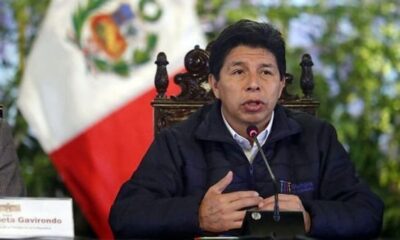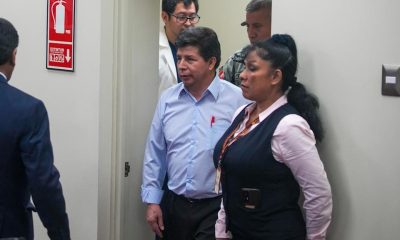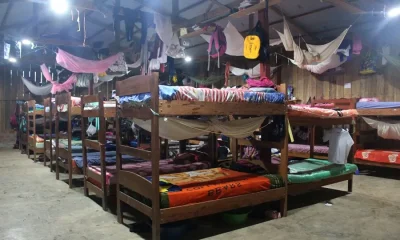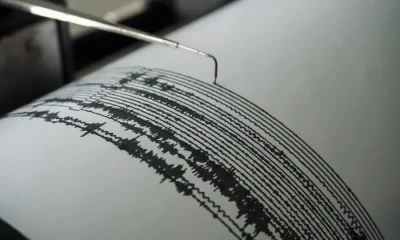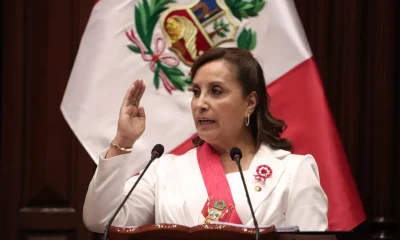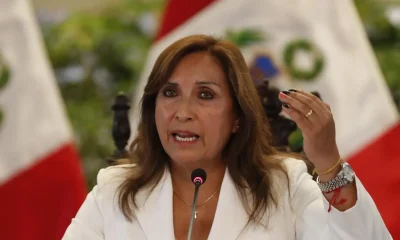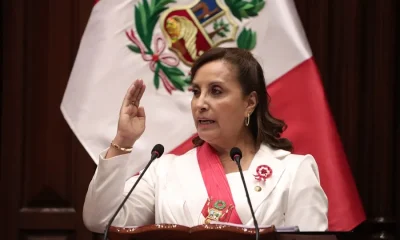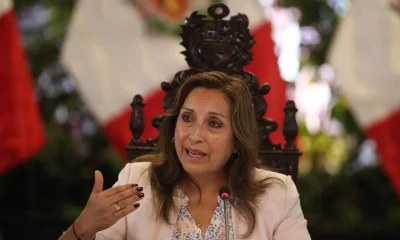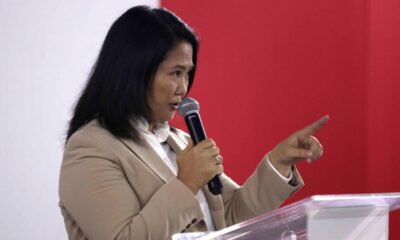International
Peru says army, police to clear protester roadblocks
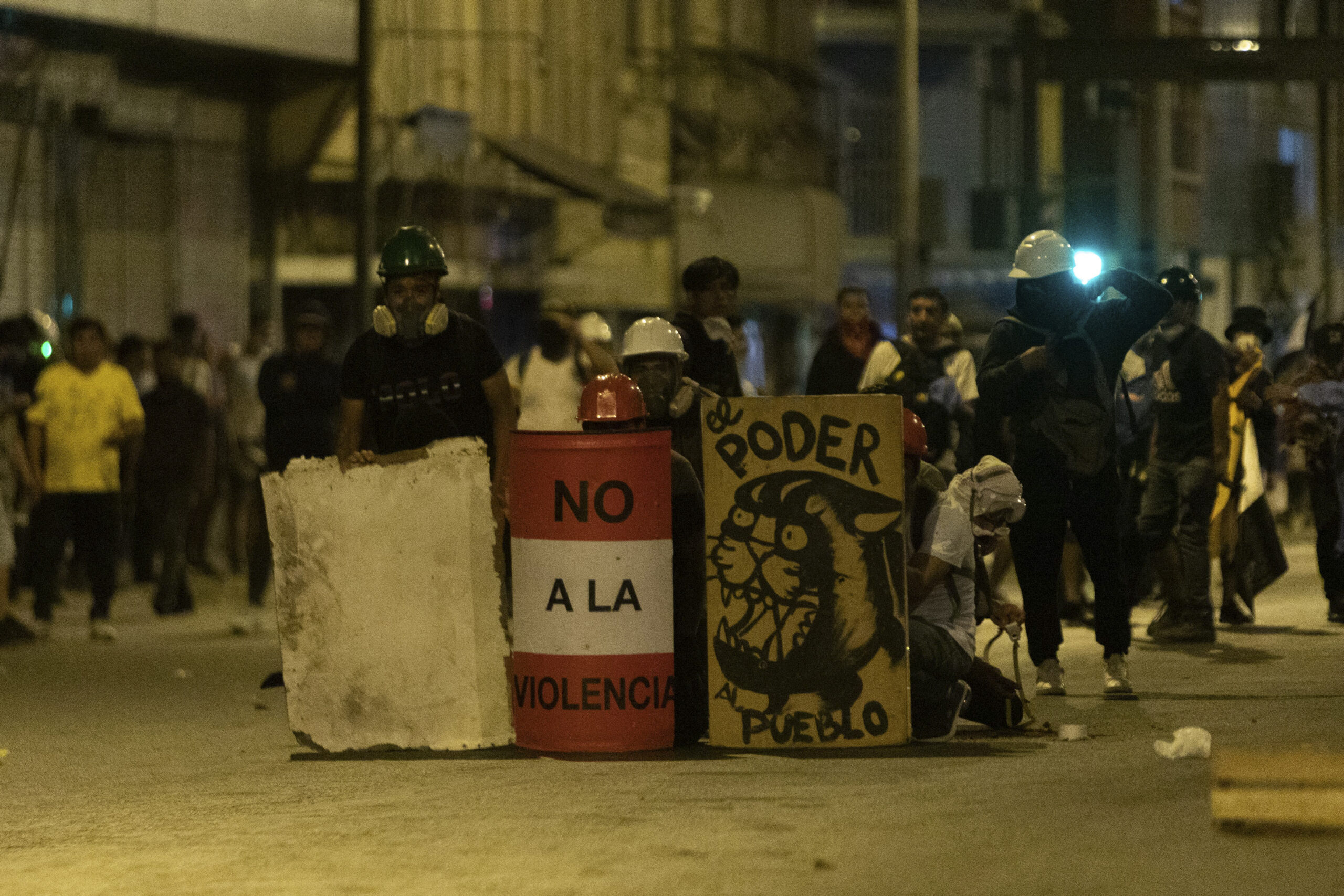
January 27 | By AFP | Carlos Mandujano |
The Peruvian government said Thursday that police and soldiers would soon move to dismantle roadblocks on the nation’s highways erected by protesters who have demanded for weeks the resignation of President Dina Boluarte.
The move announced by the defense and interior ministries comes as shortages of basic goods including food and fuel have escalated in the South American country, with freight deliveries to the south compromised.
“The Peruvian national police, with the support of the armed forces, will unblock the national network of highways that have been the subject of a state of emergency,” the ministries said in a joint statement.
Authorities said that traffic was blocked in eight of Peru’s 25 regions on Thursday, which has also complicated medical treatment in some areas, with doctors unable to access needed medicines.
Protests, which broke out after the ouster and arrest in early December of former president Pedro Castillo, have repeatedly turned violent, with 46 people dying in clashes between security forces and protesters.
The government ministries said the right to protest “does not justify the obstruction of roadways” or trump the rights of people who need chemotherapy or deliveries of oxygen canisters.
It blamed the roadblocks for 10 deaths, including those of several children who did not receive medical care in time.
Protests have been fueled by anger in poor rural regions in the south where inhabitants — mainly Indigenous — felt that Castillo, who has Indigenous roots himself, represented their interests rather than those of the Lima elite.
Castillo’s ouster followed an attempt by him to dissolve congress and rule by decree, in what appeared to be a bid to avoid an impeachment vote and stave off corruption investigations.
On Thursday, protesters tossed stones and security forces responded with tear gas and rubber bullets in central Lima after hundreds had staged a march against Boluarte, who had been Castillo’s vice president.
‘Unprecedented’ repression
Earlier in the day in the mining town of Juliaca, relatives of those killed in the weeks of protests demanded justice.
Rights organizations have accused the government of repressing protesters and the disproportionate use of force.
“All I ask for please is justice. I am asking them for help because no one is going to bring back my brother,” said a tearful Maria Samillan.
Her 31-year-old brother Marco Antonio Samillan, a doctor, was killed during protests earlier this month in the southern Andean town.
On January 9, 18 people were killed after protesters tried to storm the airport. One of the dead was a police officer burnt alive in his vehicle. Marco Antonio was shot dead while trying to save injured protesters.
“Every day I feel that I also died. I cannot live any more,” said Samillan, talking via video from Juliaca at a press conference by a national rights group.
Lawyer Mar Perez accused authorities of extrajudicial killings and claimed security forces used machine guns.
“We are seeing levels of repression that are unprecedented in Peruvian democracy,” Perez told AFP.
International
Paraguay summons Brazilian ambassador over Itaipú espionage scandal
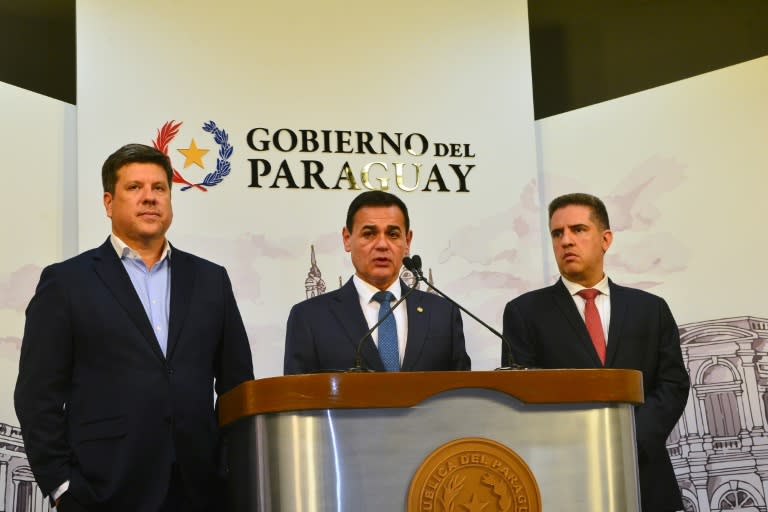
Paraguay summoned the Brazilian ambassador in Asunción on Tuesday to demand “explanations” and called its own representative in Brasília for consultations following Brazil’s acknowledgment of an espionage operation. The Brazilian government, led by President Luiz Inácio Lula da Silva, attributed the operation to the previous administration.
The surveillance effort aimed to uncover Paraguay’s position in now-suspended negotiations with Brazil regarding the pricing of electricity from the binational Itaipú hydroelectric plant, according to reports in the Brazilian press.
The Brazilian government “categorically denied any involvement in the intelligence operation,” stating in a Foreign Ministry communiqué on Monday that the espionage was carried out under former President Jair Bolsonaro’s administration (2019-2023).
“The operation was authorized by the previous government in June 2022 and was annulled by the interim director of the (state intelligence agency) ABIN on March 27, 2023, as soon as the current administration became aware of it,” Brazil’s government asserted.
Paraguay’s Foreign Minister Rubén Ramírez announced that Brazilian Ambassador José Antonio Marcondes de Carvalho was summoned “to provide detailed explanations” regarding the operation. Additionally, Paraguay recalled its diplomatic representative in Brasília “to report on aspects related to the intelligence activity conducted by Brazil regarding Paraguay’s government affairs.”
International
Elon Musk to step down as government advisor, per Trump insiders
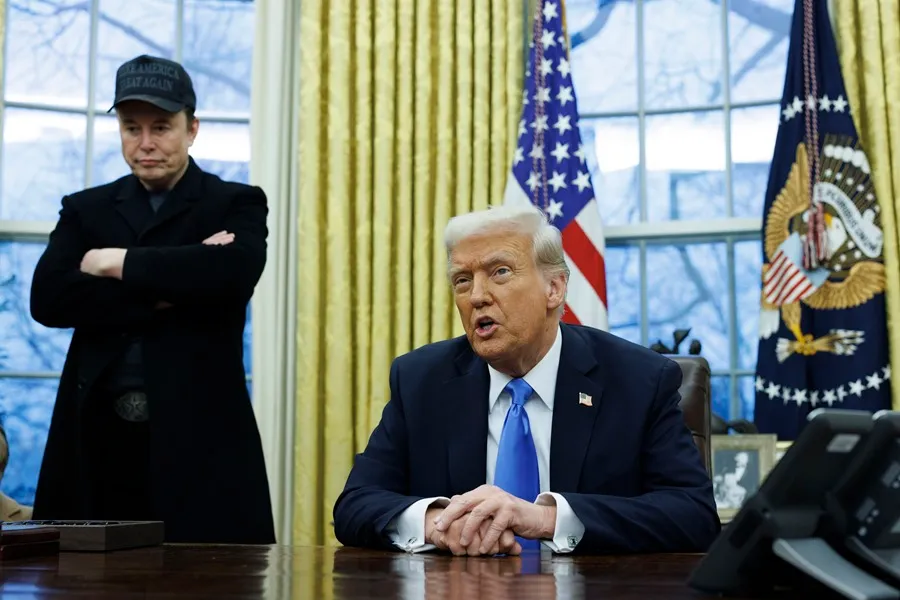
President Donald Trump has informed his inner circle that Elon Musk will be stepping down from his role as a government advisor, according to a report by Politico today.
Citing three individuals close to Trump, Politico states that the president is pleased with Musk’s leadership at the Department of Government Efficiency (DOGE), where he has implemented significant budget cuts. However, both have agreed that it is time for Musk to return to his businesses and support Trump from a different position outside the government.
A senior administration official told Politico that Musk will likely maintain an informal advisory role and continue to be an occasional visitor to the White House. Another source warned that anyone thinking Musk will completely disappear from Trump’s circle is “deluding themselves.”
According to the sources, this transition is expected to coincide with the end of Musk’s tenure as a “special government employee,” a temporary status that exempts him from certain ethics and conflict-of-interest regulations. This 130-day period is set to expire in late May or early June.
International
Milei vows to make Argentina so strong that Falkland Islanders “choose” to join

Argentine President Javier Milei reaffirmed his country’s claim over the Falkland Islands (known as the Islas Malvinas in Argentina) and praised the role of the nation’s armed forces during a ceremony marking the “Veterans and Fallen Soldiers of the Malvinas War Day,” commemorating 43 years since the 1982 conflict with the United Kingdom.
Argentina continues to assert sovereignty over the islands, arguing that Britain unlawfully seized them in 1833.
“If sovereignty over the Malvinas is the issue, we have always made it clear that the most important vote is the one cast with one’s feet. We hope that one day, the Malvinas residents will choose to vote with their feet and join us,” Milei stated.
“That is why we aim to become a global power—so much so that they would prefer to be Argentine, making deterrence or persuasion unnecessary. This is why we have embarked on a path of liberation, working to make Argentina the freest country in the world and once again the nation with the highest GDP per capita on the planet,” he added.
-

 Central America3 days ago
Central America3 days agoU.S. Homeland Security Secretary urges Mexico to strengthen Guatemala border
-

 Central America3 days ago
Central America3 days agoPanama grants Martinelli 72-hour extension to travel to Nicaragua
-

 International1 day ago
International1 day agoParaguay summons Brazilian ambassador over Itaipú espionage scandal
-

 Central America4 days ago
Central America4 days agoPanama police clarifies that Interpol alert for Martinelli is still pending
-

 International3 days ago
International3 days agoTrump urges Putin to reach peace deal
-

 International4 days ago
International4 days agoDeportation flight lands in Venezuela; government denies criminal gang links
-

 Sports1 day ago
Sports1 day agoFilipe Luis debuts as coach in Copa Libertadores with Flamengo
-

 Central America1 day ago
Central America1 day agoGuatemalan police officer killed in mob riots over baby kidnapping
-

 International1 day ago
International1 day agoElon Musk to step down as government advisor, per Trump insiders
-

 Sports1 day ago
Sports1 day agoVenezuela investigates 18 baseball players seeking asylum in Spain
-

 International1 day ago
International1 day agoMilei vows to make Argentina so strong that Falkland Islanders “choose” to join
-

 International1 day ago
International1 day agoICE agent’s arrest of suspect sparks controversy in Boston
-

 International1 day ago
International1 day agoÓscar Arias: Trump’s trade policies are a step backward














